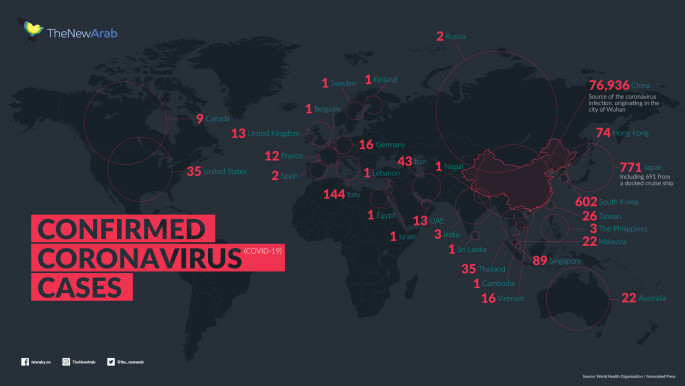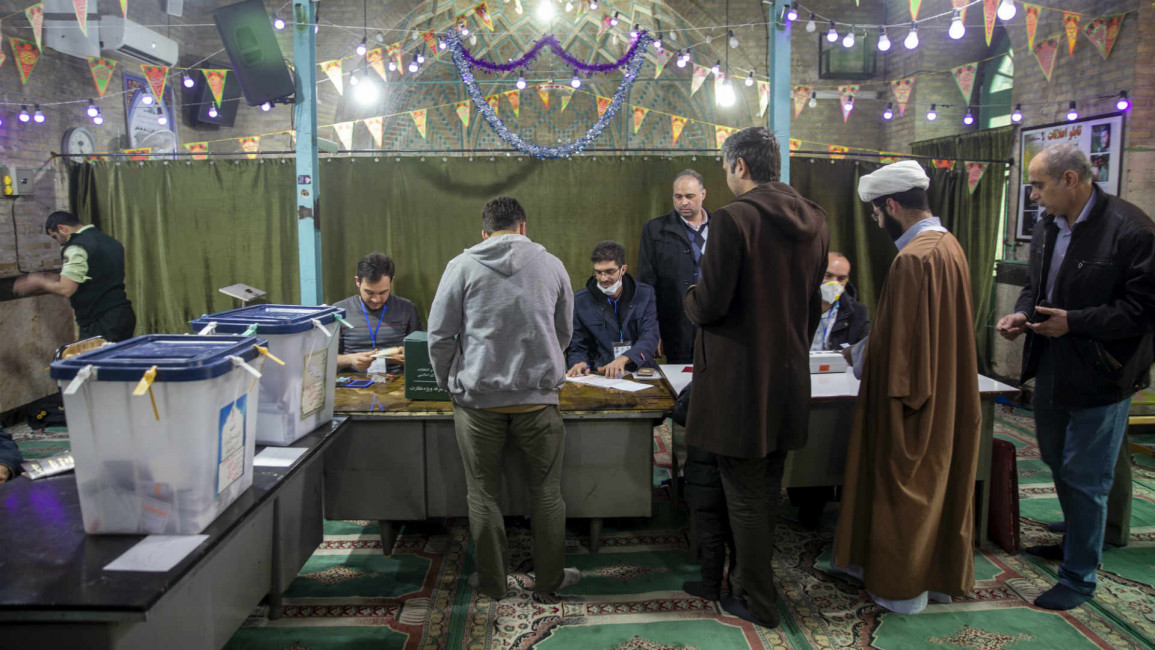Iranian hardliners expected to claim majority amid lowest ever voter turnout
Iran's interior minister announced on Sunday that just 42.6 percent of eligible voters turned out for Friday's vote, in remarks aired live on state television.
It was the lowest turnout in a general election since the 1979 Islamic revolution.
Abdolreza Rahmani Fazli said the participation rate was "acceptable" for Iran after it experienced bad weather, an air disaster, a coronavirus outbreak and other incidents in the lead-up to Friday's election.
Supreme leader Ayatollah Ali Khamenei also commented on the coronavirus outbreak on Sunday, accusing enemy "propaganda" of attempting to dissuade potential voters from heading to the polls by amplifying the threat of the virus' spread. Officially known as COVID-19, the virus has killed at least eight people in the Islamic Republic.
Observers had also predicted a low turnout for the election due to the widespread disbarring of reformist candidates by Iran's Guardian Council.
An unofficial tally by Reuters on Sunday indicated that nationalist and religious conservatives have won out not only in Tehran but across the Islamic Republic.
|
|
Hardliners have won 178 of the 290 seats in parliament, according to the tally based on early returns.
Unofficial counts of voter turnout before Fazli's announcement had estimated that just 47 percent of eligible voters had taken to the polls nationwide, a figure higher than the official turnout stated by the interior minister on Sunday.
Estimates placed voter turnout in the capital as low as 25 percent. The official count for Tehran is yet unclear.
Former Tehran mayor Mohammad Bagher Qalibaf, a top contender for the post of parliamentary speaker, was the top winner in the capital, state TV said.
Voters had limited options on Friday's ballot, with more than 7,000 potential candidates had been disqualified, most of them reformists and moderates. Among those disqualified were 90 sitting members of Iran's 290-seat parliament who had wanted to run for re-election.
The record low voter turnout may also indicate growing disillusionment with the Iranian establishment, analysts say.
Nationwide protests against the government were brutally repressed late last year, with as many as 1,500 demonstrators killed by security forces according to Reuters.
The official IRNA news agency said ballot counting had come to an end on Sunday, with 201 out of 208 constituencies decided. The seven relatively smaller constituencies will be decided in a run-off election later in April.
If the conservatives' resurgence is confirmed, it will mean President Hassan Rouhani's slender majority of reformists and moderates elected four years ago is nearly purged.
The moderates have been weakened by the US pullout from a landmark nuclear deal in 2018 and the imposition of fresh sanctions.
Follow us on Facebook, Twitter and Instagram to stay connected



